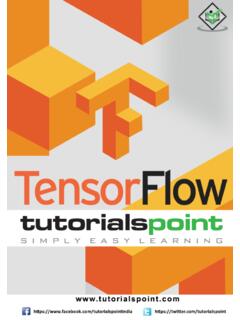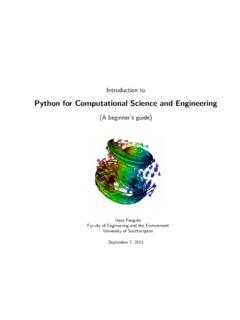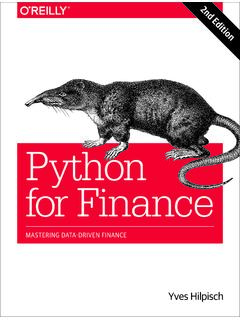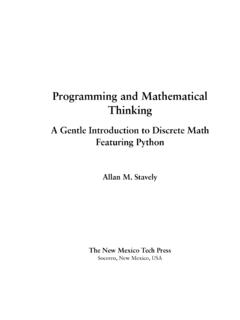Transcription of Aalto Science Institute (AScI) summer research programme ...
1 Page 1 | 46 Aalto Science Institute (AScI) summer research programme 2022 project list For more information on the program and how to apply, see SCHOOL OF CHEMICAL ENGINEERING 3 Department of Bioproducts and Biosystems 3 1101 - Towards renewable liquefied petroleum gas: Purification and in vitro biochemistry of cofactors derived from methanogens 3 1102 - Applications of CRISPR-mediated genome editing in methanogens 4 SCHOOL OF ELECTRICAL ENGINEERING 5 Department of Communications and Networking 5 2101 - Bayesian Inference for Computational Cognitive Models 5 2102 - Intelligent Optimization for User Interface Design 6 2103 - Evaluation of User Interface Designs 6 2104 - Color Design AI 7 2105 - Co-design with AI 7 2106 - A Robotic Model for Affordance Perception 8 2107 - Simulation-based Optimization for Physical Interaction Design 9 2108 - Computational Graphical User Interface
2 Evaluation 9 Department of Electrical Engineering and Automation 10 2201- Intelligent Vertical Farm 10 Department of Electronics & Nanoengineering 11 2301 - Organic Materials and Devices 11 Department of Signal Processing and Acoustics 12 2401 - Robust machine learning in the Big Data era 12 SCHOOL OF ENGINEERING 13 Department of Built Environment 13 3101 - Integration of mesoscopic and agent-based simulations for mobility 13 3102 - Investigating drivers' behavior under social routing nudges 14 Page 2 | 46 Department of Civil Engineering 15 3201 - Structural analysis and simulation of origami structures 15 Department of Mechanical Engineering 16 3301 - Data-driven models for mechanical behavior of materials 16 3302 - Application of Machine Learning in safety assessment of autonomous navigation system 17 3303 - Development of autonomous ship model 18 SCHOOL OF Science 19 Department of Computer Science 19 4101 - Deep Learning for Extreme Scale Classification 19 4102 - Deep Learning for Extreme Scale Classification 20 4103 - Deep Representation Learning Foundations and New Directions 21 4104 - Reproducible accuracy in machine learning 22 4105 - ABC assistant for statistics selection 22 4106 - Investigating Homophily and the Glass Ceiling
3 In Supervisor- and Collaboration-Networks 23 4107 - Shortest salesman tours and Steiner trees in a geometric setting 23 4108 - Deep generative modeling for precision medicine and clinical trials 24 4109 - Deep generative modeling for continuous-time dynamical systems 25 4110 - Deep generative modeling for single-cell sequencing data analysis 25 4111 - Developing the vHelix DNA nanostructure design platform 26 4112 - Reconstructing Crisis Narratives: Computational Social Media, Visualization and Platform Design 27 4113 - Civic Agency in AI? Democratizing Algorithmic Services in the City (CAAI) 27 4114 - Approximate inference in Bayesian deep learning 28 4115 - Advancing deep mixtures of Gaussian processes expert models 29 4116 - Stationary deep learning models applications for uncertainty quantification in computer vision 30 4117 - Foundations of distributed and parallel computing (multiple positions)
4 31 4118 - Massively Parallel Algorithms for Graph Problems 31 4119 - Bayesian workflow 32 Department of Mathematics and Systems Analysis 33 4201 - Formalization of mathematics related to probability theory 33 4202 - Formalization of mathematics related to analysis 34 Department of Neuroscience and Biomedical Engineering 35 4301 - DNA-origami-based plasmonic assemblies 35 Department of Applied Physics 36 4401 - Machine learning, statistical physics and engineering of foams 36 4402 - Simulating Quantum Computers with Matrix Product States 37 4403 - Single photon generation in electron quantum optics 38 4404 - Predicting phase transitions in quantum systems 39 4405 - Generation and detection of entanglement in Cooper pair splitters 40 4406 - Machine Learning Strategies for Scientific Data Analysis 41 4407 - Preformed Cooper paring and non-Abelian anyons in graphene-based systems 42 4408 - Finite Temperature Neural Network Quantum States for Lee-Yang Theory 43 4409 - Dynamical excitations in confined quantum spin liquids 44 4410 - Growth and
5 Characterization of 2D ferromagnet / ferroelectric heterostructures 45 4411 - MBE growth of transition metal dichalcogenide monolayers 45 4412 - Radiation damage in multi-component alloys 46 4413 - Emergent phenomena in liquids out of thermodynamic equilibrium (2 positions) 46 Page 3 | 46 School of Chemical Engineering Department of Bioproducts and Biosystems 1101 - Towards renewable liquefied petroleum gas: Purification and in vitro biochemistry of cofactors derived from methanogens Field of study: Biochemistry For students currently studying: Master s School: School of Chemical Engineering Department: Bioproducts and Biosystems Professor: Silvan Scheller Academic contact person: Maxime Laird Background + Overall goal: Methanogens are microbes with the ability to reduce CO2 to methane (biogas, a one-carbon fuel).
6 The individual reduction steps are carried out at cofactors, such as F420 and H4 MPT. The overall research goal is to extend this chemistry towards producing 2-4-carbon fuels (liquefied petroleum gas: ethane, propane or butane) that can be easily liquefied at room temperature. It serves the purpose of converting CO2 with renewable energy to a storable fuel. Cofactor research : We are isolating different cofactors from methanogenic archaea, which we cultivate under hydrogen in 10L bioreactors. Purified cofactors are loaded with C1 or C2-4 carbon substrates. Next, reducing equivalents and different enzymes are added and the reaction is followed using UV-Vis and/or NMR spectroscopy.
7 This way, we want to find out which cofactors and enzymes have to potential to reduce multi-carbon substrates. Tasks for summer students: - Cultivate methanogens (Methanothermobacter marburgensis) in a 10L fermenter under hydrogen and CO2 - Harvest biomass via continuous centrifugation - Isolate different cofactors; done under strictly oxygen-free conditions (anaerobic chamber) - Extend our library of purified cofactors and enzymes - Perform in vitro experiments (test different combinations of C1/C2 substrates + cofactors + enzymes), to test the ability to process multi-carbon substrates - Carry out analytic analyses ( MALDI-MS, UV-Vis, NMR) to assess purity or to verify reaction progress - Potentially: Heterologous expression of new enzyme variants Necessary skills: - Skilled in doing labwork ( not being clumsy ).
8 Being able work with small, precious samples under strict exclusion of oxygen (anaerobic chambers), but also to work with 10L fermenter and hydrogen - Preferentially: Solid understanding of (bio)chemistry, experience in chromatography - Preferentially: Experience (or theoretical knowledge) of advanced spectroscopic methods Page 4 | 46 1102 - Applications of CRISPR-mediated genome editing in methanogens Field of study: Molecular biology For students currently studying: Master s School: School of Chemical Engineering Department: Bioproducts and Biosystems Professor: Silvan Scheller Academic contact person: Ping Zhu Background: Methanogens are microbes with the ability to reduce the substrate CO2, generating the product methane (CH4, biogas).
9 They are champions for both processes: 1) for the CO2 reduction and 2) for the production of methane. On the other hand, they are not good in utilizing or producing multi-carbon substrates or products. Overall goal: The goal is to extend the substrate and product scopes of methanognes. We want to achieve this by introducing additional genes that extend the metabolism. To enable efficient gene edition, we are currently developing better CRISPR-tools for those organisms. Possible tasks for summer students (depends also how the current research is progressing): - Optimize our current CRISPR toolbox for faster and smarter editing of genomes - Extend toolbox to other methanogen species - Explore potential targeting-sites in genome - Gene expression level test - Insertion of genes to enlarge the metabolic potential of methanogens (metabolic engineering) Necessary skills: - Ample experience in molecular biology: molecular cloning, PCR, electrophoresis, etc.
10 - Carry out lab work independently - Hard-working Page 5 | 46 School of Electrical Engineering Department of Communications and Networking 2101 - Bayesian Inference for Computational Cognitive Models Field of study: Computer Science - Human-Computer Interaction, Machine Learning, and Cognitive Science For students currently studying: Bachelor s or Master s School: School of Electrical Engineering Department: Department of Communications and Networking Professor: Antti Oulasvirta Academic contact person: Antti Oulasvirta Description: Computational cognitive models are simulators that make predictions of behaviour in various tasks.







